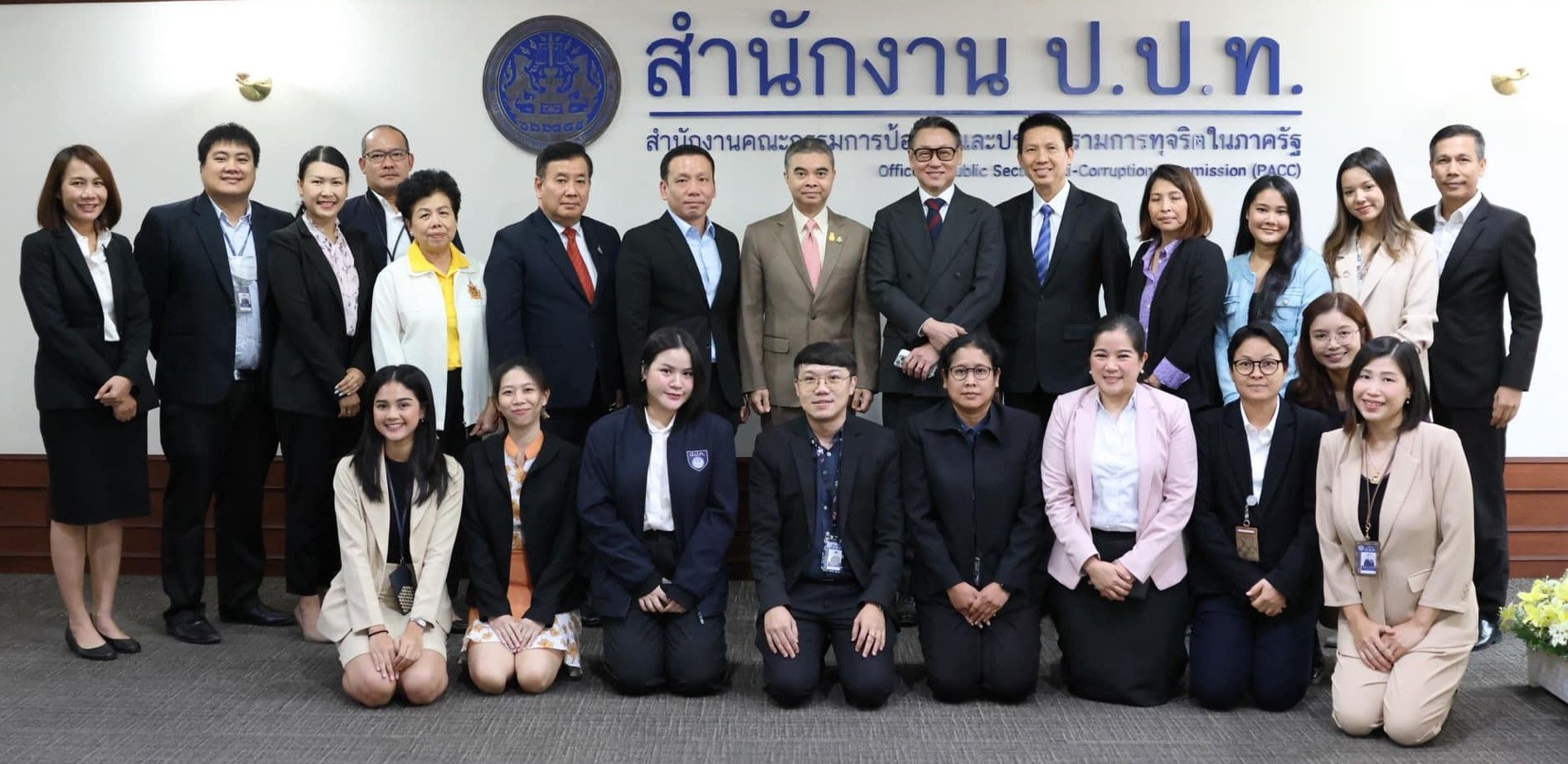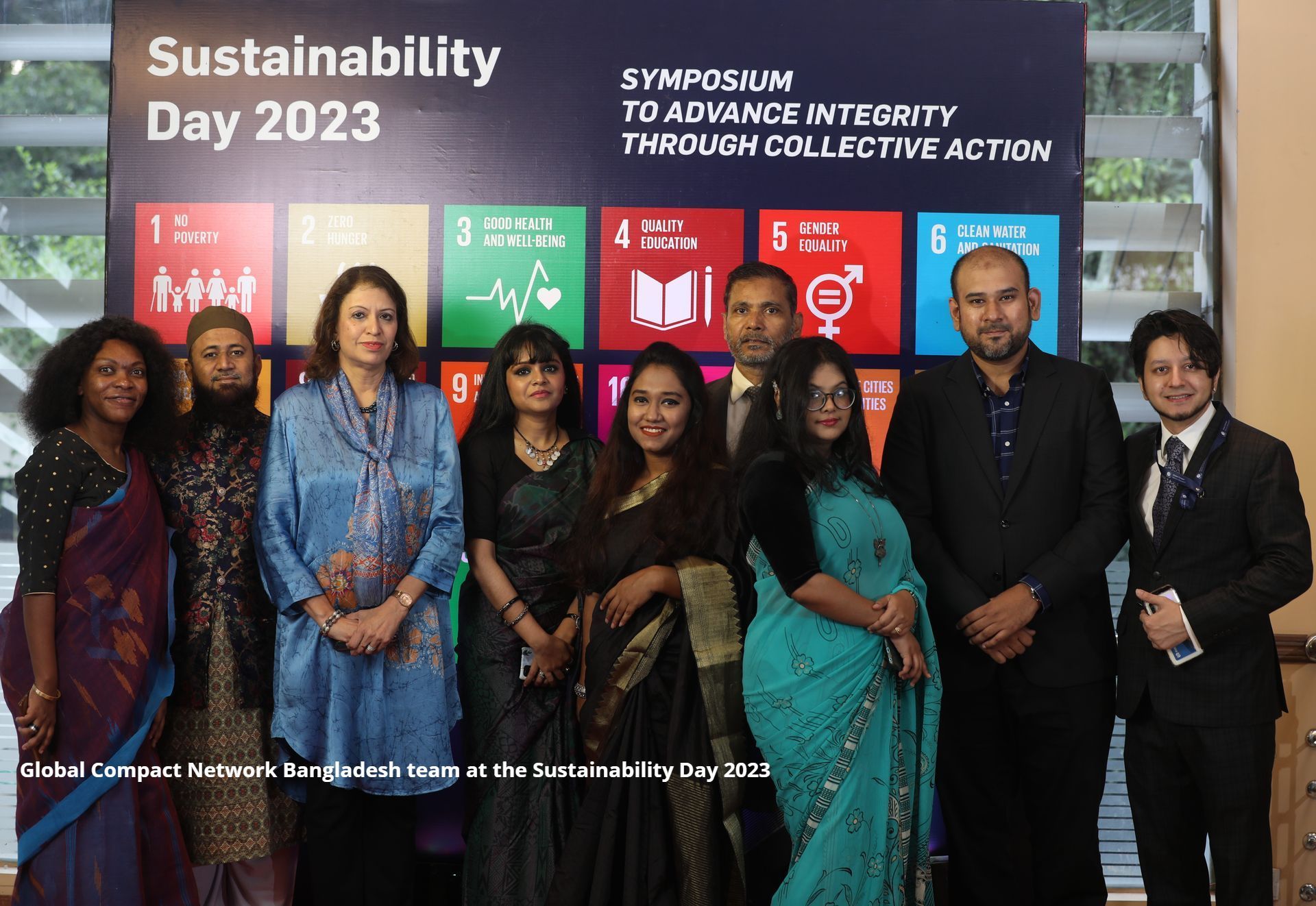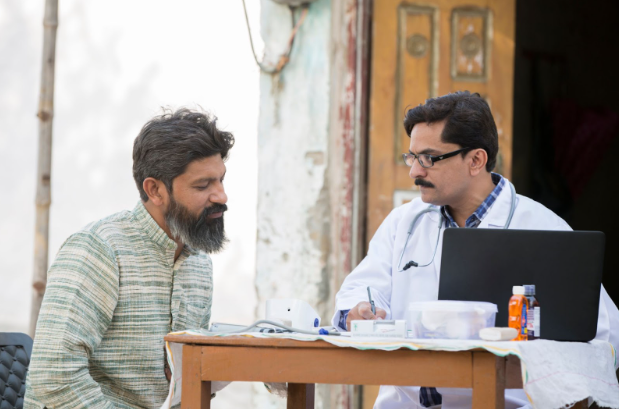Impact Stories

In Thailand, corruption has long been a subject many would rather not mention, especially in business. For years, the idea of openly discussing bribery or undue influence in public-private dealings felt risky, even dangerous. But through the Anti-Corruption Collective Action (ACCA) project, the Global Compact Network Thailand helped shift that dynamic. Backed by the Siemens Integrity Initiative , Network Thailand provided a trusted platform where the private sector could come together, share experiences and begin to speak with a unified voice. Rather than leading the change alone, the Network supported Thai companies in expressing their challenges, commitments and expectations — ensuring their voices were finally heard in national discussions on integrity and reform. To open the conversation, Network Thailand reframed anti-corruption not just as a legal obligation, but as part of a broader commitment to Environmental, Social, and Governance (ESG) values, ethical leadership and sustainable business growth. This new framing resonated with companies and helped shift the tone from fear to possibility. “In a group with the right people and the right tone, we can be honest about what’s difficult. That’s where change starts.” — Private sector company in Thailand Network Thailand used creative and respectful methods — like Chatham House Rules and confidential interviews — to build trust. Through this careful approach, over 50 companies began participating in regular working group sessions. What once felt like a taboo topic is now discussed openly through peer learning, training workshops and collaborative problem-solving. To support companies in making real change, Network Thailand developed and shared practical resources — like the Anti-Corruption Compliance Challenges and Case Studies: Findings from the Thai Private Sector. The publication offers actionable guidance for embedding anti-corruption practices across operations and supply chains, while also navigating the complex risks of engaging with public institutions. One standout moment was the 8th National Dialogue on Business and Human Rights, where Dr. Netithorn Praditsarn, Secretary-General and Board Member, Global Compact Network Thailand, underscored the need for genuine collaboration and measurable goals. He called for policy reforms to simplify and safeguard recruitment processes, stronger ethical standards for agencies, the use of technology to enhance transparency and greater corporate disclosure aligned with international human rights and anti-corruption standards.

In Bangladesh, where the mere mention of corruption was once considered taboo, the Global Compact Network Bangladesh embarked on a bold journey to address this pervasive issue. Recognizing the sensitivities around openly discussing anti-corruption efforts, Network Bangladesh strategically framed its initiatives under the banner of "integrity and good governance." This approach helped ease initial resistance from key stakeholders, including the private sector and academia, laying the groundwork for transformative change. Recognizing that young people are the future leaders of both public and private sectors, Network Bangladesh embedded youth capacity-building into its integrity efforts under the Siemens Integrity Initiative , implemented by Global Compact Country Networks. “Promoting integrity fosters a more ethical and sustainable society where people can exercise their rights and access information. Instilling ethical values in students prepares them for responsible leadership and helps build trust, attract talent and drive social progress,” e xplained Dr. Muhammad Faisol Chowdhury, Director, School of Business & Economics, North South University.

Supply chain corruption not only increases the cost of doing business, it erodes trust, weakens governance and threatens Malaysia’s global competitiveness. With trade partners like the European Union and Japan maintaining strict anti-corruption enforcement, businesses operating in or with Malaysia must meet rising expectations for transparency and integrity, or risk being left behind. Corruption in supply chains often plays out in subtle but damaging ways. In some cases, some large corporations exploit their power over small and medium-sized (SME) suppliers by demanding bribes or kickbacks, in exchange for securing or renewing contracts, taking advantage of the power imbalance in the relationship. Conversely, some SME suppliers admit to offering bribes as a supposed “competitive advantage,” believing that if they don’t play along, because “everyone else is doing it” they risk losing business opportunities altogether. When Malaysia’s corporate liability law—Section 17A of the Malaysian Anti-Corruption Commission (MACC) Act—came into force in June 2020, it marked a turning point for the country’s business landscape. The law introduced corporate liability for corruption committed by employees and associates, placing significant pressure on companies to show that they had ‘adequate procedures’ in place to prevent and address misconduct. For many businesses, particularly SMEs, this shift brought uncertainty and risk. With limited resources, little awareness, and increasing client demands, SMEs were especially vulnerable to non-compliance, facing the threat of multimillion-ringgit fines or even imprisonment. In response to these urgent needs, the Anti-Corruption Collective Action (ACCA) initiative, led by Global Compact Network Malaysia & Brunei, was launched to help companies meet these new legal and ethical expectations head-on. The initiative set out with a clear purpose: to empower businesses, especially those most at risk, with the tools, knowledge, and support needed to navigate this complex new environment.

Indonesia’s agribusiness sector plays a vital role in the economy, supporting livelihoods, rural development, and exports. Yet, corruption continues to limit its full potential, with challenges varying by region. In response, Global Compact Network Indonesia launched the Anti-Corruption Collective Action (ACCA) initiative in 2022, supported by the Siemens Integrity Initiative. This three-year program targets corruption in the land-based sector, with a focus on agribusinesses like palm oil.

Let’s have dinner and chat. It might sound like a nice, friendly invitation, but is it? An anti-corruption initiative in Brazil is using videos to highlight hypothetical questions and everyday dilemmas that business leaders, employees, clients and suppliers might face. How they respond in real life is key to upholding ethical standards. The set of eight animated videos was launched by Brazil’s Agribusiness Anti-Corruption Collective Action (ACCA), an initiative facilitated by Global Compact Network Brazil. Brazil’s agribusiness in particular is vulnerable to corruption, given the array of licenses, certifications and inspections required throughout the industry that require sensitivity and high standards of ethics, professionalism and transparency to be effective. The agribusiness anti-corruption videos offer practical solutions and reinforce the importance of maintaining ethical standards in everyday business practices. In one video, for example, a company representative and a public official meet by chance in the city center. As they chat, the official casually suggests discussing a potential contract over dinner. The video freezes, giving way to the company representative speaking in a voice-over, weighing whether this would be an appropriate course of action. The company representative concludes that accepting the invitation could be seen as taking an illicit advantage, potentially leading to problems for himself and the company. The video proceeds to explain how interactions with public officials should be conducted, emphasizing the importance of transparency, protocol and formal procedures. In the end, the company representative decides it would be more appropriate to arrange a formal meeting at the office instead of accepting the dinner invitation.

An online platform launched by Global Compact Network Kenya in 2024 has bolstered these efforts by allowing signatories to publicly upload annual anti-corruption reports and promote transparency and accountability. It also serves as a resource hub, providing various anti-corruption tools and learning materials.

The war has not only raised the risks of corruption. It has made the need for an effective, corruption-free business environment that can attract investment, access foreign funding and foster innovation for national defense an absolute priority.
To this end, UN Global Compact Ukraine has stepped up, publishing “Business Integrity Lessons from a War Zone,” a guide for companies seeking to eradicate corruption, and launched a video course "Anti-Corruption" as part of its Anti-Corruption Collective Action Programme.



